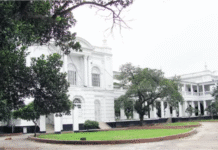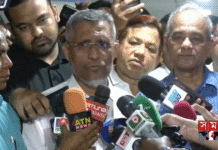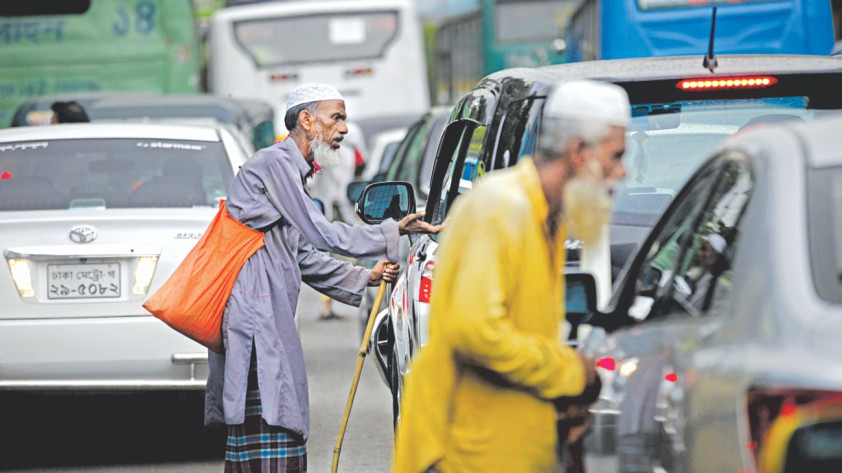
Beggars on Dhaka streets, at intersections and in front of markets. Hundreds of them, mostly able-bodied, arrive in the capital before Eid to earn some quick bucks with almost no effort at all. They tap on car windows until its annoyed passengers give in and pay them to stop the knocking. They keep nagging people for money at kitchen markets and shopping malls. The photos were taken at different places in the capital recently. Photo: Rashed Shumon, Sk Enamul Haq
Hands for alms go up in many folds ahead of Eid in Dhaka .
It is a time when people are more generous with bonuses in their pockets and their businesses doing well. But you do not have to be generous; the beggars have techniques to get money out of you.
Quite often they extend their hands when you pull out your wallet or stick your hand into your purse to pay the rickshaw puller or a street vendor; you are virtually caught with money in your hands. How do you then say no to someone asking for “spare change”?
You can’t just ignore when they are constantly tapping the window of your car stuck in traffic. You’d just pay them so that they stop the knocking.
These people asking you for money could actually be earning more than you did this month. They are probably not poor or physically challenged at all.
From toddlers to octogenarians and pretend handicaps to homeless, all amateur part-time beggars throng the capital ahead of Eid to grab a slice of what is apparently a large pie.
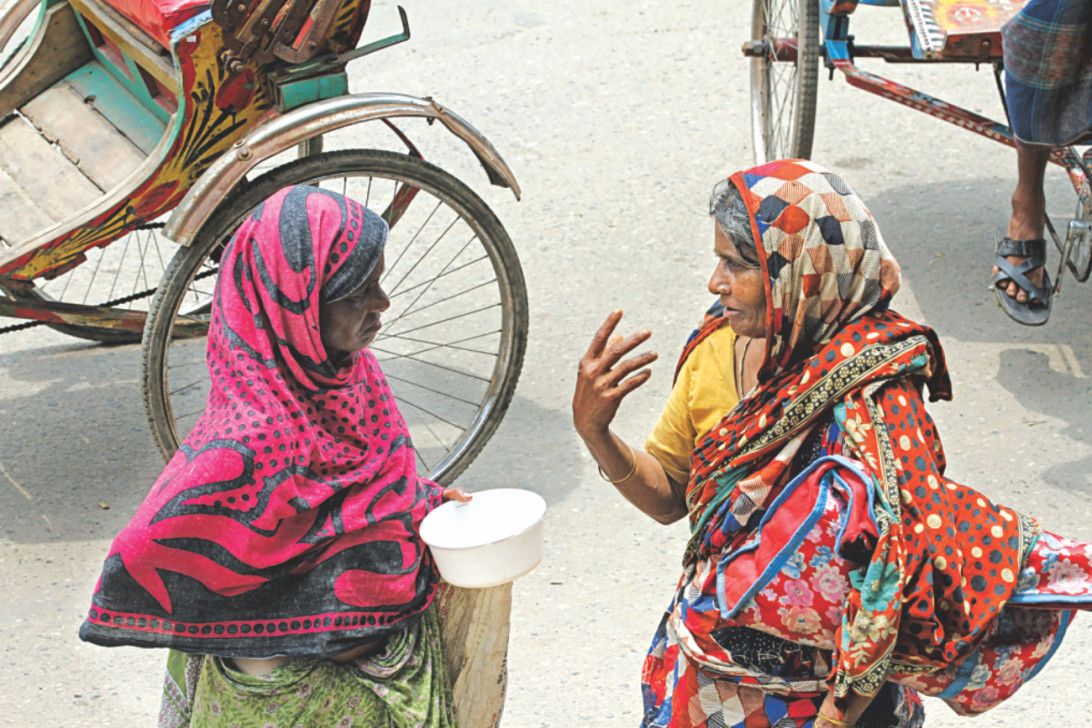
Around 11:00am during Ramadan at Nilkhet intersection, an elderly man was training another on how to go about asking for alms.
The new-to-begging from Satkhira used to be a rickshaw puller and was hesitant in doing what every one looked down upon. In his first attempt, he got into a bus but stepped off it almost instantly.
“If you are ashamed you can’t do it. Try to apply the techniques … you will see how money comes,” the experienced man was imparting wisdom to the other.
The experienced one, also hailing form Satkhira, said the number of beggars doubled since Ramadan began.
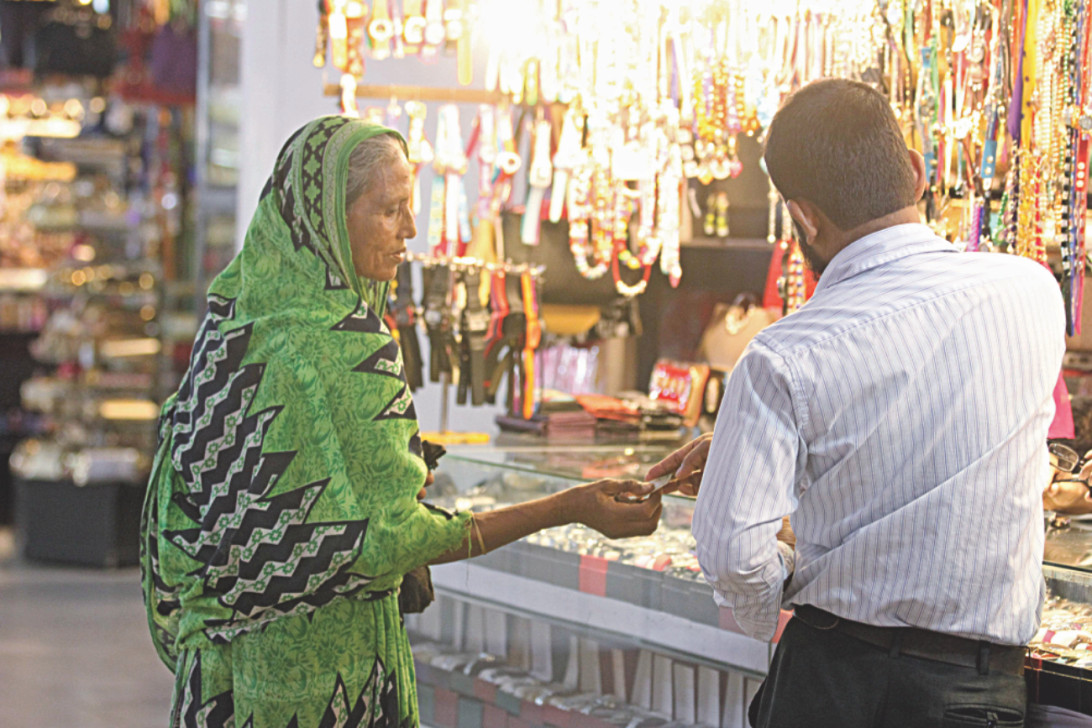
Before rushing off towards a rickshaw passenger, beggar Mazid Akand of Barisal told The Daily Star, “A woman who lives in Boubazar and begs at an intersection brought me here.”
The beggars are everywhere; in front of shopping malls, railway and bus stations, mosques, restaurants, offices, hospitals, shops, graveyards, roadside markets and even in residential areas.
They use words of religion in the holy month and wish wellbeing of the people they are asking the money from; they would say anything to get your attention and make you “emotional” to get the cash.
Some of course are not so subtle in their ways.
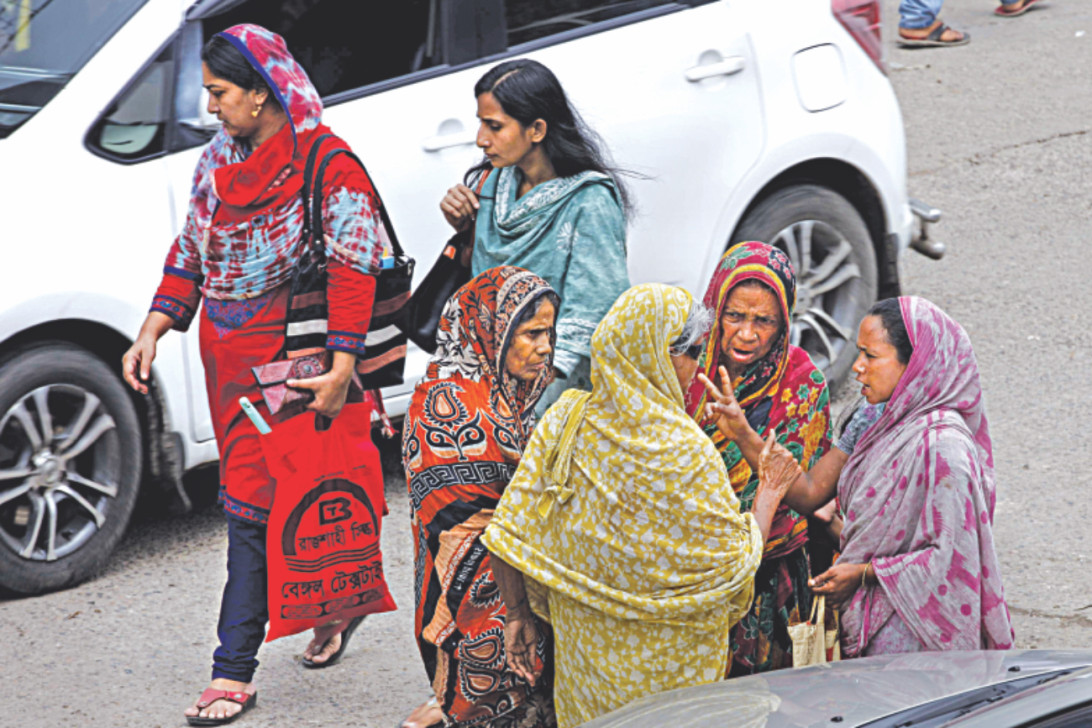
A beggar was repeatedly asking for money alms when a person was buying things at Mohammadpur Town Hall market. As he gave him Tk 10, five others surrounded him and asked for money. “I’ll stop coming here to get away from you,” the person told them angrily.
Some others encircled a woman there and virtually forced her to give them Tk 100 and then got locked in an altercation themselves over the share.
Several beggars were seen chasing a woman near Labaid Hospital after she stepped on to the street from a shopping mall. She had to run into an ATM booth for protection. The guard at the booth eventually chased the beggars away.
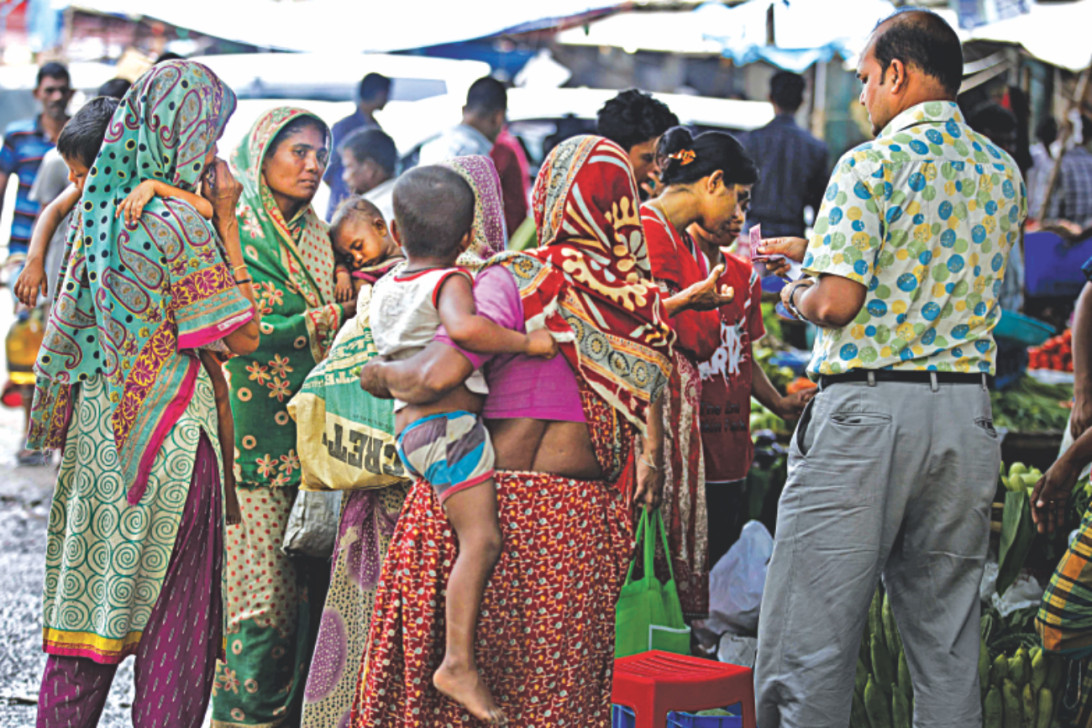
Rowshan Ara, the woman, said, “Even though they are physically fit, they seek alms … It’s annoying. The government should take steps to stop this nuisance.”
A witness to the incident said, “They [the beggars] demand money as if we owe them.”
Kulsum of Jamalpur has been begging at Hatirpool and Shahbagh intersection for years. She works at the intersection for 7-10 days a month and then she leaves for home.
But during Ramadan, she doesn’t miss a day.

This year, she brought her daughter along to improve earnings. “My earnings have nearly doubled. And, my daughter will get fitra and zakat money, and clothes from people,” she said.
A local fruit vendor said Kulsum earns over Tk 1,500 a day. “Her husband is a chicken trader in Jamalpur but she begs to make money easily,” he said.
A minor boy with a plastic pot was rolling on a crowded footpath in front of the Bashundhara city shopping mall. Nobody would question his inability to walk. He was getting quite a lot uttering a sentence in Arabic.
But the fact is, a few days ago, he was seen begging and walking with a crutch.
When a vendor recognising him asked him what had happened to the crutch, the boy outright denied he ever had one.
Closing his tea stall for a month, Shahadat came to Dhaka three days ago from Manikganj. Even though he was physically sound, he pretended to be crippled at Science Lab intersection.
“I am not a typical beggar. I come to earn extra money,” he said, adding that like him many from Manikganj do the same. They stay at a nearby mosque at night.
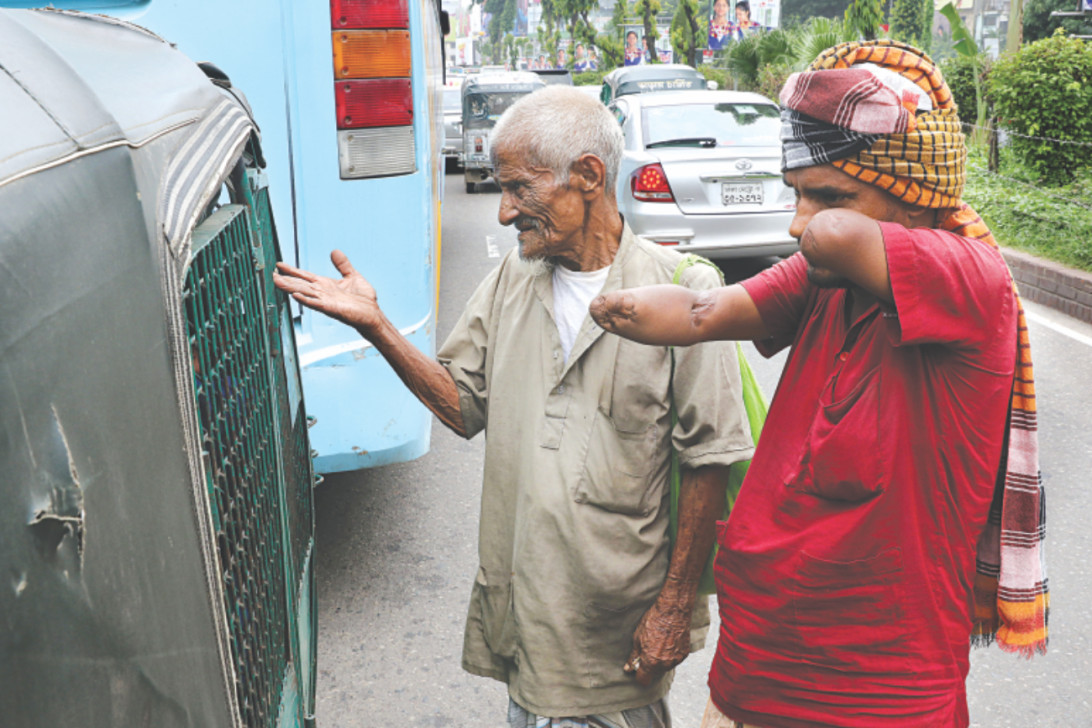
Almost every city intersection has 5-10 beggars. They keep knocking on the windows of cars until they get what they want.
“Sometimes it feels like they will break the window if not paid,” said Selina Akhter, who was frightened seeing a beggar putting his hand through the window at Khamarbari yesterday.
Some physically challenged beggars move on very low push carts or self-driven carts at busy intersection, disrupting traffic movement and putting people at risk.
Although the menace is getting worse, there is no effective mechanism to stop this.
Some steps were taken in the past to discourage begging, rehabilitate beggars or flush them out of the city but nothing worked. Police displayed signboards prohibiting begging at Sheraton and Gulshan-1 intersections but many beggars were seen there.
Joint Secretary of Social Welfare Ministry MM Sultan Mahmud said the government took some beggars to a rehabilitation centre in Mymensingh but most of them escaped only to return to Dhaka.
Source: The Daily Star

